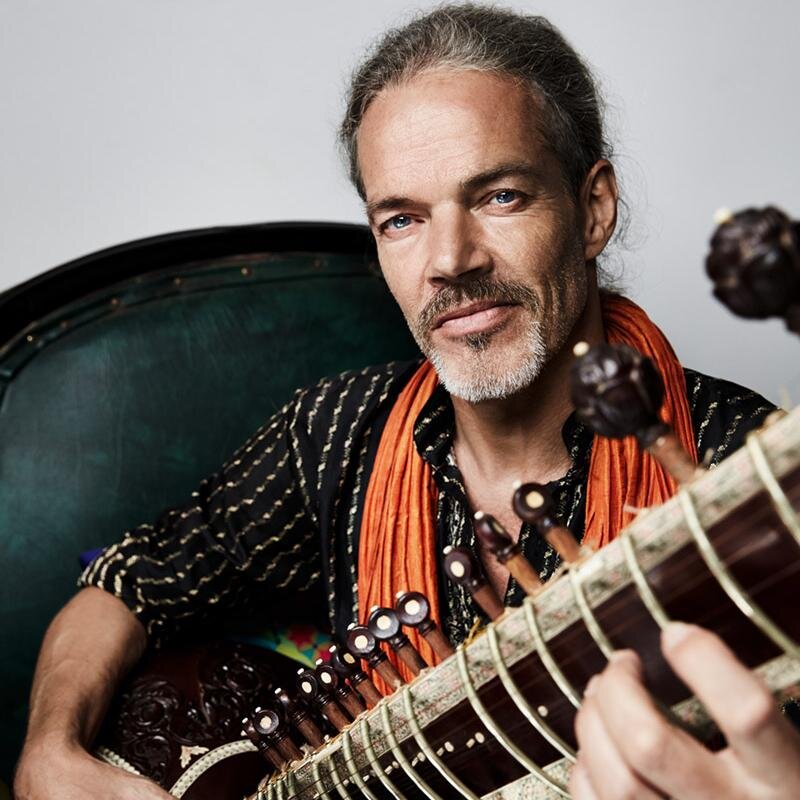
Prem Joshua
Born to a musical family in Germany, Prem Joshua began learning the flute at the age of five and became a fine flautist when still a child. As a teenager he started learning electric guitar and saxophones. His practicing Rock and Jazz could not only be heard in his own house. Some of his neighbors (classical music teachers!) still haven't forgiven him to this day!
Nevertheless he was soon performing in various Rock, Jazz and Fusion bands to a more appreciative audience, always searching for new ways of expressing and expanding his music.
This musical "discontent" combined with his spiritual seeking led him to an interest in India. He remembers hearing Indian music for the first time at 16 on a record called Concert For Bangladesh, a live recording of a festival with George Harrison and many other famous Rock names from that time.
One side of the 3-vinyl record set was a performance on sitar by Ravi Shankar: "I had never heard anything like this before," Joshua recalls. "This was beyond my musical grasp and experience but was something of such immense beauty and depth. It felt unfamiliar and mysterious--yet at the same time like a remembrance of something I knew very well."
In the late seventies, at the young age of 18, he knew only one thing: what he DIDN'T want to do! He left home and high school and ended all his career plans to go overland from Europe to India and join the "hippie tribe" in an attempt to find out what he really wanted. On his first three overland trips to the East he traveled throughout countries like Greece, Turkey, Iran, Afghanistan and Pakistan.
He became deeply involved with traditional oriental folk music, playing live with and learning from local musicians everywhere. "I loved the roots of this music and felt an immediate connection that I missed so much in Central European folk," he says. When he reached India he had a sensation of knowing it; it felt like coming home!
Along with the feeling of familiarity there seemed to be an inexplicable vibe of at-ease-ness in this country of mysteries, contradictions, colors and smells. One of his first actions in India was to buy a sitar in Delhi for the price of what you pay for it's strings today. What he didn't know then is that playing this instrument would become a main part of his life.
And coming home to India was only the "outer" part of his journey. On his travels he came across the enlightened mystic, Osho. In the presence of this man with a long white beard, eyes as deep as the ocean and a strong sense of humor, he got in touch with the art of the inner music –silence.
Of his time in India, Joshua reports, "This was really coming home! For the following years I did nothing but be with this man, meditate and play, play, play music. Here I found the musical and spiritual nourishment and satisfaction that I had been looking for. I started playing with musicians from all over the world and learning from some of India's finest teachers, among them Maestro Ustad Usman Khan, who became my sitar mentor."